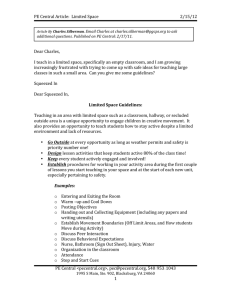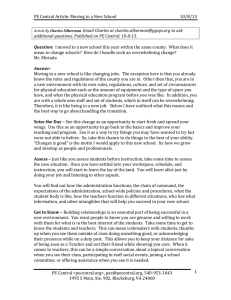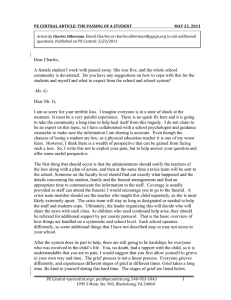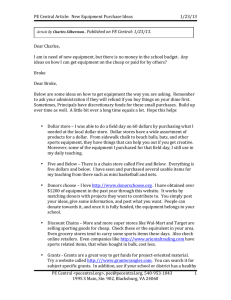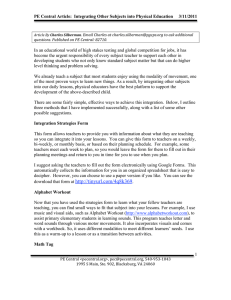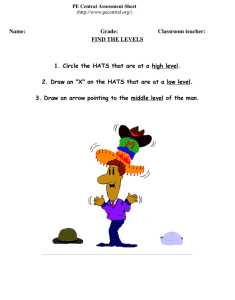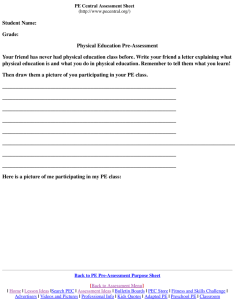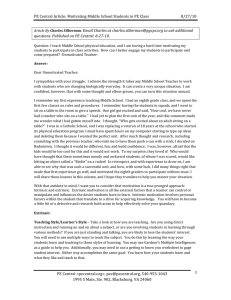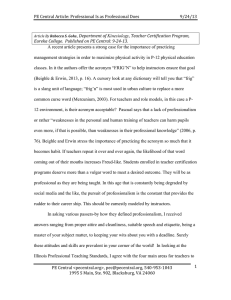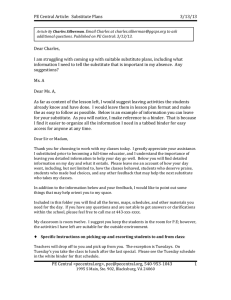PE Central Article: Anger Management 4/11/12 Email Charles at to ask
advertisement
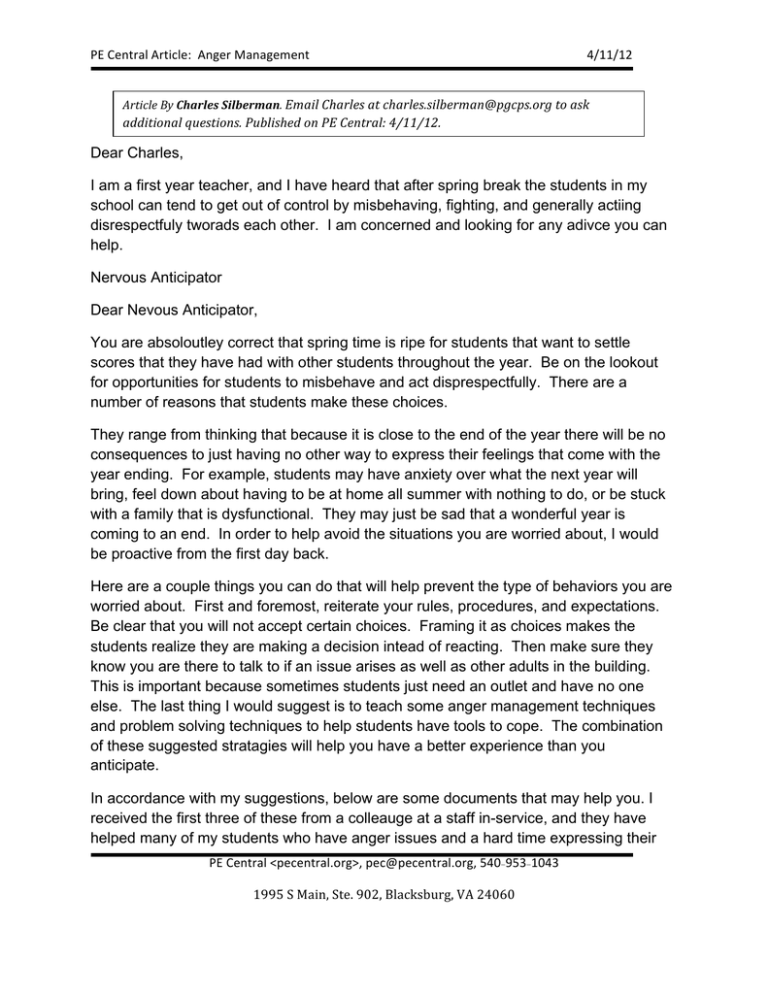
PE Central Article: Anger Management 4/11/12 Article By Charles Silberman. Email Charles at charles.silberman@pgcps.org to ask additional questions. Published on PE Central: 4/11/12. Dear Charles, I am a first year teacher, and I have heard that after spring break the students in my school can tend to get out of control by misbehaving, fighting, and generally actiing disrespectfuly tworads each other. I am concerned and looking for any adivce you can help. Nervous Anticipator Dear Nevous Anticipator, You are absoloutley correct that spring time is ripe for students that want to settle scores that they have had with other students throughout the year. Be on the lookout for opportunities for students to misbehave and act disprespectfully. There are a number of reasons that students make these choices. They range from thinking that because it is close to the end of the year there will be no consequences to just having no other way to express their feelings that come with the year ending. For example, students may have anxiety over what the next year will bring, feel down about having to be at home all summer with nothing to do, or be stuck with a family that is dysfunctional. They may just be sad that a wonderful year is coming to an end. In order to help avoid the situations you are worried about, I would be proactive from the first day back. Here are a couple things you can do that will help prevent the type of behaviors you are worried about. First and foremost, reiterate your rules, procedures, and expectations. Be clear that you will not accept certain choices. Framing it as choices makes the students realize they are making a decision intead of reacting. Then make sure they know you are there to talk to if an issue arises as well as other adults in the building. This is important because sometimes students just need an outlet and have no one else. The last thing I would suggest is to teach some anger management techniques and problem solving techniques to help students have tools to cope. The combination of these suggested stratagies will help you have a better experience than you anticipate. In accordance with my suggestions, below are some documents that may help you. I received the first three of these from a colleauge at a staff in-service, and they have helped many of my students who have anger issues and a hard time expressing their PE Central <pecentral.org>, pec@pecentral.org, 540-953-1043 1995 S Main, Ste. 902, Blacksburg, VA 24060 PE Central Article: Anger Management 4/11/12 feelings. The last one came from a book by J.D Hughes called No Standing Around in My Gym. It has rules for a set problem solving area in the gym where students go solve problems. When someone has a issue with another student, ask them to go to the problem solving area. The student can’t say no to going to the area, and they must talk in a convesational tone while working through the steps. You can get the feeling chart mentioned in the problem solving rules at www.freeprintablebehaviorcharts.com. Post these documents in a visible place where students can see them daily. Show them to your students, have them practice each choice, and role play scenarios. Then be consistent in reminding students about these choices and techniques as concerns arrise. To comment or have your question answered, email me at charles.silberman@pgcps.org. Also, follow me on twitter: ThePeGuy. Learn more about me at www.charlesssilberman.com PE Central <pecentral.org>, pec@pecentral.org, 540-953-1043 1995 S Main, Ste. 902, Blacksburg, VA 24060 PE Central Article: Anger Management PE Central <pecentral.org>, pec@pecentral.org, 540-953-1043 1995 S Main, Ste. 902, Blacksburg, VA 24060 4/11/12 PE Central Article: Anger Management PE Central <pecentral.org>, pec@pecentral.org, 540-953-1043 1995 S Main, Ste. 902, Blacksburg, VA 24060 4/11/12 PE Central Article: Anger Management 4/11/12 Angry Frustrated Take a deep breath Calm down using one or more of these. PE Central <pecentral.org>, pec@pecentral.org, 540-953-1043 1995 S Main, Ste. 902, Blacksburg, VA 24060 PE Central Article: Anger Management 4/11/12 Step 1: Identify your feeling to the other person (Use the Feeling Chart) Step 2: What is the exact problem? Remember to Listen! Step 3: Tell your side of the story; don’t play the blame game; be honest Step 4: Suggest possible solutions and come to an agreement; shake hands on the agreement. Your handshake is your word and bond. Step 5: Carry out the agreement by keeping your word! PE Central <pecentral.org>, pec@pecentral.org, 540-953-1043 1995 S Main, Ste. 902, Blacksburg, VA 24060
